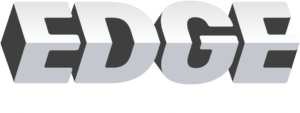
Last Updated: April 26th, 2024
Est. Reading: mins

Non-profit organizations must weigh important considerations before selecting a cloud-based solution for their grant billing and management. They must have a firm understanding that the platform’s benefits will accomplish all goals and meet the objectives.
After reviewing all the factors and sufficiently answering them, the non-profit organization will now be prepared to make an informed decision about selecting the right cloud-based platform for its needs.
Consider the following when selecting a cloud-based platform for grant billing management:
Ensure that the platform can be tailored to meet unique needs and that it offers flexibility in configuration options. You should be able to add or modify features as requirements evolve for your organization’s workflows and specific grant programs.
Assess the platform’s compatibility with existing systems and applications used by your organization, such as accounting software, CRM systems, or project management tools. Seamless integration reduces data silos and improves efficiency by allowing for the smooth flow of information across different platforms.
Research the cloud service provider’s reputation and track record, including uptime reliability, data security practices, and customer satisfaction ratings. Choose a reputable vendor with a proven record of serving non-profit organizations and adhering to industry standards and best practices.
Ensure that the platform covers the grant lifecycle from the point of receiving the award to post-award tasks like expense activities, budget modifications and reporting. Assess the platform’s ability to manage multiple grants simultaneously and support complex funding arrangements, including multi-year grants and sub-awards.
Clarify ownership rights and data portability options in the event of switching providers or terminating the service. Ensure that you retain control over your organization’s data and that you can easily migrate it to another platform if necessary.
Evaluate the platform’s user interface and ease of use for both administrators and end-users. Look for intuitive design, comprehensive documentation, and training resources to support staff members in learning how to use the system effectively.
Verify that the platform complies with relevant regulatory requirements and industry standards governing grant management, data privacy, and financial reporting. If applicable, consider factors such as data protection and HIPAA compliance for healthcare-related grants.
Verify the platform’s data backup and disaster recovery procedures to safeguard against data loss due to hardware failures, cyberattacks, or natural disasters.
After understanding the key features of a cloud-based grant management solution, here are the benefits non-profit organizations’ should expect to receive:
Cost-effectiveness: Reduced need for physical infrastructure such as servers and IT staff as well as the advantage of utilizing a “Pay-as-you-go pricing model” which can be more affordable for non-profits with limited budgets.
Scalability: The system can easily be scaled up or down based on the organization’s needs without worrying about hardware limitations or staffing. This flexibility will accommodate growth or fluctuations in grant activities.
Accessibility: You can access your data from anywhere with an internet connection, allowing for remote work and collaboration among team members. This enables field staff or partners to input data and access information in real-time, improving efficiency and communication.
Data Security: Cloud providers often offer robust security measures and compliance certifications, ensuring the safety and confidentiality of sensitive grant data and performing regularly scheduled backups and disaster recovery capabilities to protect against data loss or breaches.
Collaboration and Transparency: A centralized platform for managing grant-related documents, budgets, and reports facilitates collaboration among team members, stakeholders, and funding agencies. Real-time access to data promotes transparency and accountability.
Streamlined Processes: Automation of routine tasks such as invoicing, reporting, and compliance tracking saves time and reduces manual errors. Integration with other software applications, such as accounting or project management tools, streamlines workflows and eliminates duplicate data entry.
Analytics: Advanced reporting and analytics features provide valuable insights into grant performance, expenditure patterns, and outcomes. Data visualization tools help non-profits make informed decisions.
Compliance and Auditing: Built-in compliance checks and audit trails ensure adherence to grant requirements and regulatory standards. The system simplifies the auditing process by providing a comprehensive record of all grant-related activities and transactions.
Continuous Updates and Support: Cloud-based solutions are regularly updated with new features, security patches, and improvements, ensuring that non-profits always have access to the latest technology. Technical support and customer service from the cloud provider help address any issues or concerns promptly.
After careful consideration of these factors, the benefits can help non-profit organizations make informed decisions when selecting a cloud-based platform for grant management, such Edge Grant Billing Systems.
Edge Grant Billing Systems is a modern cloud-based grant management solution providing tools and features to help organizations be cost-effective in tracking and managing their grant finances. Some specific ways that Edge Grant Billing Systems will help with grant allocation include:
Time Savings: Significantly improve the amount of time it takes to do expense allocations and billing, turning staffing labor from days into hours. The expense allocation for all grants is literally done within a couple of minutes.
Budgeting and Forecasting: The software can help organizations create and manage a budget for their grant, allowing them to allocate funds and resources in a way that aligns with the grant’s goals and objectives.
Expense Tracking: Edge Grant Billing Systems can help organizations track and manage expenses related to the grant, including supplies, equipment, personnel costs, and any other expenses.
Reporting: The software can generate reports on grant finances, including budget reports, expenditure reports, and progress reports, which can be used to monitor the grant’s financial performance and ensure compliance with grant guidelines.
Compliance: Edge Grant Billing Systems can help organizations ensure compliance with grant guidelines and regulations, including those related to spending and reporting.
By providing tools and features to help organizations track and manage their grant finances, Edge Grant Billing Systems can assist with grant allocation by enabling organizations to use their grant funds effectively and efficiently to achieve their intended goals.
